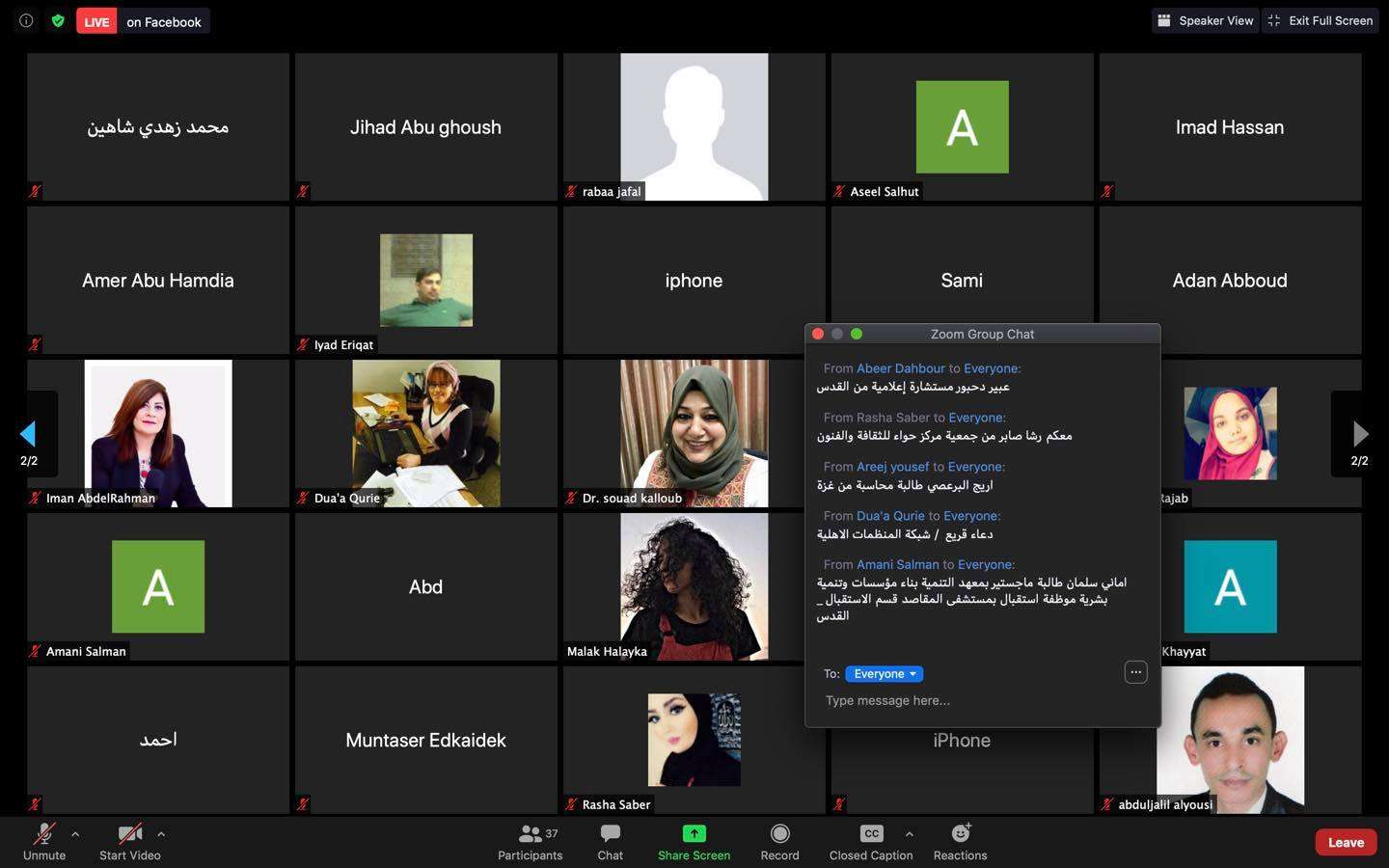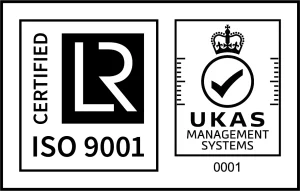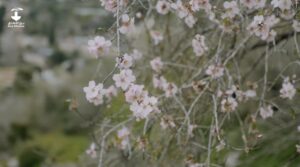The third panel discussion within “The Second Jerusalem Youth Forum 2020” Identity and Youth in Palestine
The third panel discussion within
“The Second Jerusalem Youth Forum 2020”
Identity and Youth in Palestine
Burj Alluqluq Social Center Society launched last Thursday, October 22, the third discussion session within the activities and agenda of the Second Jerusalem Youth Forum, which was launched earlier this month with several dialogue and discussion sessions with a variety of youth content and the success of the forum is the result of cooperation and partnership with partner institutions Sharek Youth Forum , Save the Youth Future Association, Palestinian NGO Network Pango, Al-Quds University, and the Institute for Sustainable Development at Al-Quds University in cooperation with the Inma Association for Democracy and Capacity Development and the Akko Group 5000 within the Opportunity Project funded by the United Nations Population Fund UNFPA.
The first youth panel discussion was entitled “Education and Youth in Palestine”:
The episode was divided into two main axes:
1- The importance of e-education and training in Palestine
2- University readiness in light of the Corona pandemic / “Al-Quds University as a model”
As for the second panel discussion entitled “Social Protection and Youth in Palestine”:
In general, the seminar dealt with important topics and main headings that were talked about and discussed:
- Social protection a rights issue?
- Safety nets – social protection
- Social protection in light of the Corona pandemic
- Impact on the right to work
- Social protection programs offered by the State of Palestine
The third panel discussion was entitled “Identity and Youth in Palestine”:
The moderator of the session, the Palestinian media, Rami Mahdawi, started his speech by welcoming the attendees, reviewing the workshop and the objectives as well, speaking about the forum competition “The best photographic initiative on achieving sustainable development goals in Palestine” and said that the door to presenting ideas, proposals and initiatives is open to every young person interested in societal issues and any idea of an initiative that contributes to Achieving one of the sustainable development goals, and winning initiatives receive financial support ranging between 2,500-3,000 euros.
The first axis: the specifics of the Palestinian case for identity in Jerusalem
The moderator started it with an interactive question:
- Do we have an identity in the Palestinian sense that is inclusive of all its components, or has it started to be divided and scattered ??
And from the interventions:
Fouad Fanoun / Bethlehem
“Identity is not a card or a tangible thing, but rather what we are and what we express.”
Yahya / Gaza
“The identity struggle is the main struggle in light of the occupation.”
Muntaser Idkedek:
“The Palestinian Jerusalemite young man, despite all circumstances, clings to his Palestinian identity and is steadfast.”
Then the opportunity was provided for the intervention of the social worker and group mentor at the Al Bustan Association and a member of the Palestinian Women’s Union in Jerusalem, Hadil Ziada:
- What is the definition of citizenship or what do we know about citizenship?
About talking about the term citizenship in general, as it is about the rights and duties that bind the individual to the state, and it is a link through a legal relationship that provides the individual with a set of rights and thus a set of duties, but as a term if we look at him when projecting it on the Jerusalem reality or the Palestinian reality in general .. For example The Palestinian According to the Palestinian Independence Document, every citizen of a Palestinian father is Palestinian, but the reality, place of residence, and objective conditions imposed by the occupation make most of the Palestinians as residing as non-Palestinians.
About the occupation state in Jerusalem, for example, a Jordanian is a permanent resident of the occupation state.
The identity papers also do not represent the Palestinian Palestinian.
Community membership, belonging to the homeland, and a historical relationship with it.
The intervention ends with a recommendation to civil society, which is the only body capable of working somewhat
We need to focus on the values of citizenship and belonging.
The second axis: the Palestinian situation in the West Bank and Gaza Strip.
It is worth noting that a great and remarkable success was during the three episodes of the Second Jerusalem Youth Forum 2020, and this indicates that the topics were the priority for a good number of institutions working in the youth sector in addition to several young men and women participating.





